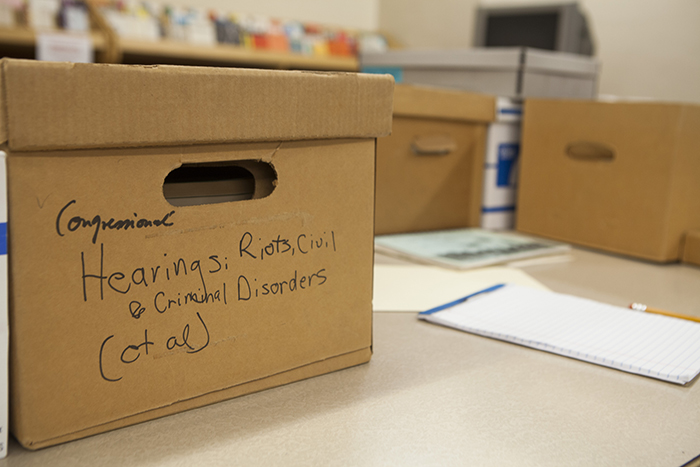 In August 1965, the Los Angeles neighborhood of Watts erupted in a week of violent protests, after a white police officer pulled over an African-American driver suspected of drunk driving. 50 years later, the uprising is remembered as one of the largest in Los Angeles history and a galvanizing moment in the civil rights movement.
In August 1965, the Los Angeles neighborhood of Watts erupted in a week of violent protests, after a white police officer pulled over an African-American driver suspected of drunk driving. 50 years later, the uprising is remembered as one of the largest in Los Angeles history and a galvanizing moment in the civil rights movement.
In an effort to understand the deeper causes of the Watts uprising, English graduate students at LMU are working with that history firsthand this semester in an archiving project at the Southern California Library. The bustling community archive in South Los Angeles maintains primary resources related to the region’s social movements, including a substantial Watts collection. But the library has dozens of boxes of unprocessed material pertaining to Watts – flyers, newsletters, sermons, letters – and our graduate students are working to inventory it.
Inventorying may sound mundane, but the project “helps researchers find previously unavailable information,”says Melanie Hubbard (MA ’11, English), digital scholarship librarian at LMU who is supporting the project.
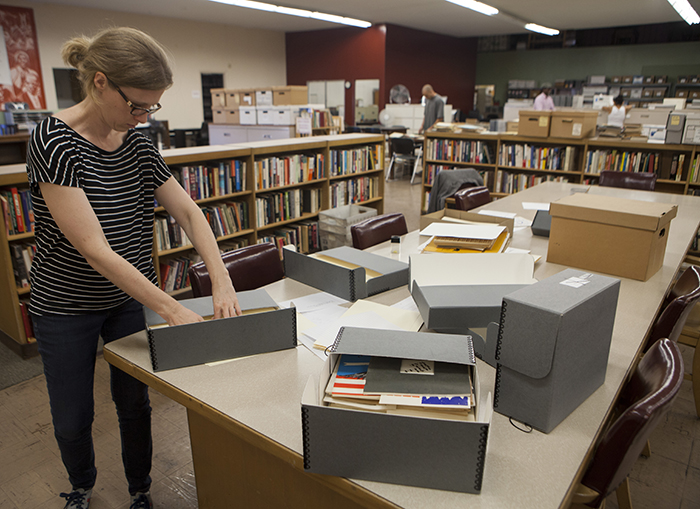
“This is a project where library science and humanities work well together,” Hubbard adds. “‘How do we categorize things without prejudicing the user?’ That’s a humanities question and a library question.” Hubbard completed LMU’s English Graduate Program before pursuing further study in library science.
The group of graduate students has gathered hundreds of documents to process for the library, most notably a rare copy of an early newsletter of the Southern California chapter of the Black Panther Party.
“Inventorying this incredible material makes the history accessible to people who can use it, so it’s a very worthwhile task,” says Hubbard.
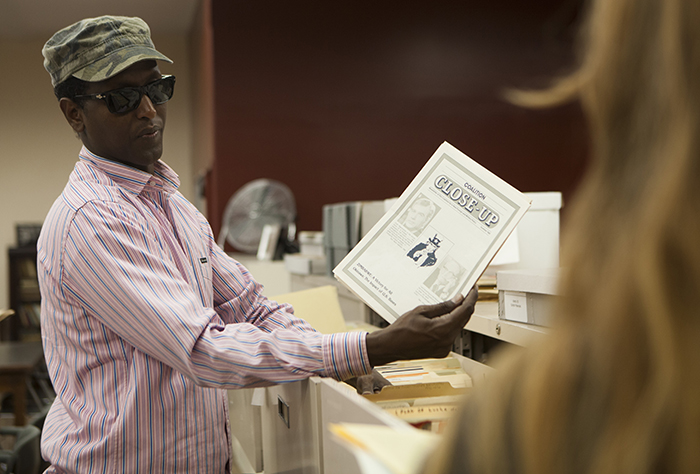
The Southern California Library’s collections are not just available to scholars and historians; they are also available to the public – activists and neighbors interested in the social justice struggles in their city.
“It’s amazing to see the materials they have,” says Mayra Cortez, English graduate student. “I grew up in LA, and this is exposing me to history I didn’t learn in school.”
The archiving project is part of a first-semester critical research methods course in LMU’s English Graduate Program, and this is the second year that the course has partnered with the library. Dr. Dermot Ryan, director of the graduate program, says the class engages students in foundational English skills – research, critical reading, close work with primary sources – while also introducing them to real-world, justice-centered applications of their discipline.
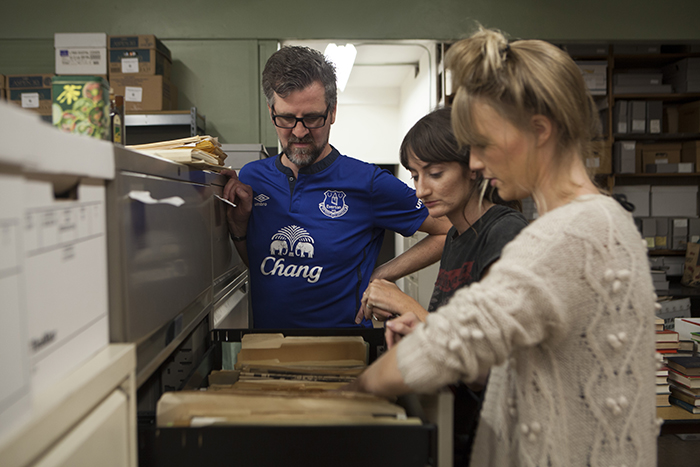
“We’re showing students that a master’s can open up a number of concrete career paths,” Ryan says. Many graduate students successfully place into Ph.D. programs to pursue further English study, but just as many enter the workforce, most frequently in education, publishing or nonprofits.
In the course, students also produce critical readings of individual objects from the Watts collection, identifying elements in the pieces that could contribute to broader historical scholarship. Cortez plans to analyze a sermon given at a local church, which she found while inventorying materials.
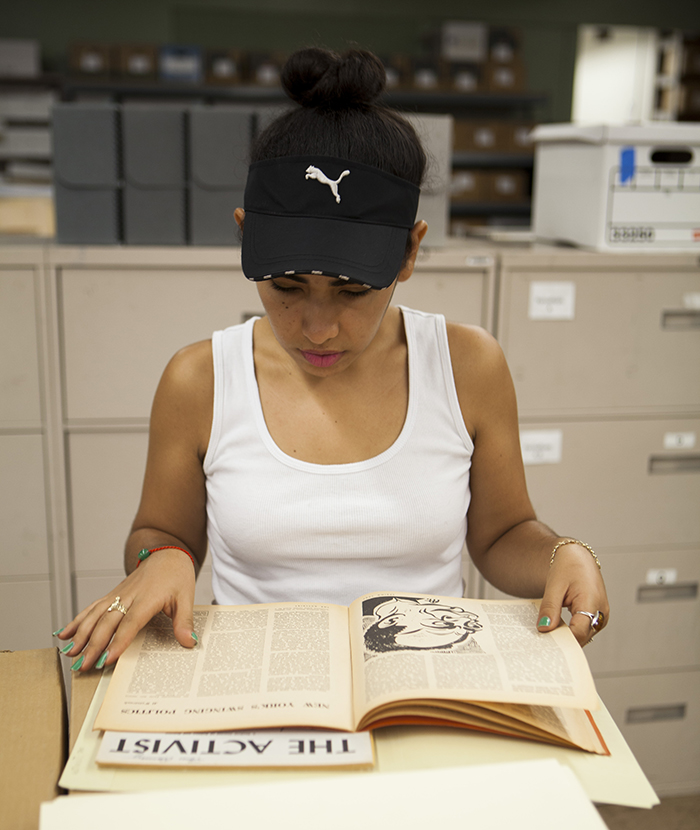
“It’s amazing how a seemingly insignificant piece of paper can open up a whole world that you didn’t expect,” says Hubbard. Those “seemingly insignificant” objects complicate and deepen the public understanding of events that unfolded 50 years ago.
Over the next year, the graduate program plans to collaborate with the Southern California Library to craft a creative digital project with some of the Watts collection. Their shared goal is to bring the Watts materials and the stories they tell to a broad audience online, supporting the Library’s mission to make Los Angeles’ social justice histories as accessible as possible.
“When a community has access to its own history, the real history?” says Cortez. “That’s powerful.”
More Information:
LMU English Graduate Program
Southern California Library



